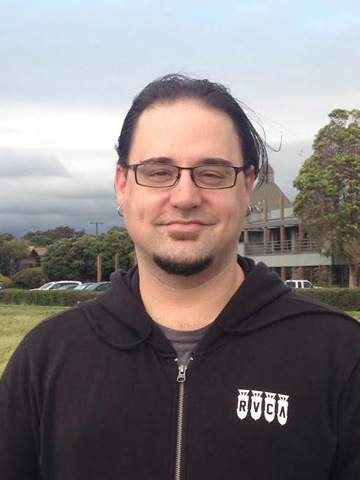Sage Curtis: Your piece, Placental Insufficiency, starts with an epigraph, which sets a haunting tone for the reader and puts them in a place of darkness and/or silence. How do you see the epigraph’s relationship working within the poem, and your work on the whole?
Todd Follett: At the time I wrote this poem, I was very interested in Dante’s Inferno, particularly this early passage about the sun going silent. It always struck me as a wonderfully haunting image that I was waiting to use. I was also reading a bit of David Wojahn at the time. The poems of his that were most striking to me dealt with an unborn child being lost and the complete devastation which that absence can have, the vacuity it leaves on people’s lives going forward. It resonated with me.
I felt the combination of these ideas was compelling, the land of the silent sun and the life unrealized, and I ended up writing something that in ways echoed the Christian story of the Harrowing of Hell, where Christ descended into the underworld to free the pagans and children who’d been condemned. I even called the first draft of this poem “The Harrowing”.
I think the epigraph represents the sort of dark, slightly romantic vision which I try to cultivate in my work.
SC: It looks like you’ve threaded a few different influences through this one poem. I know this to be a common practice through your work. How does this “braiding” inspire you and help to create your unique images and language choices?
TF: I’ve always connected with braided writing and poems that rely on metaphor and analogy. I think it’s a great way of exploring the emotional or existential intangibles that connect two somehow analogous moments without ever directly focusing on them. Also, for as long as I can remember, I’ve had a knack for explaining something by using a different moment or image, and I enjoyed making things clear that way. Perhaps this was because, growing up, I often felt like I didn’t understand things the conventional way, the way most people understood them. Analogies and metaphors helped me realize there are many ways to approach an idea. It’s certainly a reason why I’m such a big fan of Larry Levis – I view him as a master of that braiding, metaphor-driven style.
For the last twenty years, as I’ve dived deeper and deeper into poetry, the more I see life as a series of moments that echo and resound within each other, almost like a patchwork of meaning. For me, it’s a rewarding way to learn to see the world. As an example, the other night I was going on a walk, feeling a bit stressed out and indecisive, and I saw the moon looking exactly half-full – I thought, “even the moon is unsure what to do”. It’s a weird synergy like that which can drive me to write a poem, or at least start one. Whether I write about the experience or not, though, I tend to take a real comfort in those connections.
SC: So poetry is always happening in your brain, essentially. Besides being inspired by the world’s strangeness, what else gets you motivated to write?
TF: When I feel a negative emotion that’s hard to contain, that’s a time when I want to write. Over the years, people have commented on how dark my writing is, but it always just felt natural to want to get the negative things out on paper and connect with others over the experience. I’ve always thought of it as an exorcism, really. I don’t tend to write about times when I’m happy, because there’s nothing to get out; I want to live in those moments, not vent them.
I’d have to say other writers get me motivated as well, whether we’re at that phase where we’re both trying to get our work published or they’ve been getting published for decades, it always feels like a bit of a relief to be around other poets and their work, as if I can be more myself in those moments.
Reading great poetry books is probably the biggest thing to inspire me, though. It’s hard for me to read Matthew Dickman, Jamaal May, Tracy K. Smith, Frank Stanford, or Larry Levis and not at least jot a few ideas down, even if it’s the tenth time I read it. I feel like some of my best poems are love letters to my favorite poets.
Todd Follett’s poems have appeared or are forthcoming in Spoon River Poetry Review, Natural Bridge, The Pedestal Magazine, Flights, and several other publications.
Sage Curtis is finishing her MFA in poetry at University of San Francisco, where she looks for microphones to read into and sometimes (always) find poetry on the streets. Her work has been published or is forthcoming in Reed Magazine, Vagabonds Literary Journal, burntdistrict, 34th Parallel, and more.


Pingback: “Placental Insufficiency” by Todd Follett | Rkvry Quarterly Literary Journal